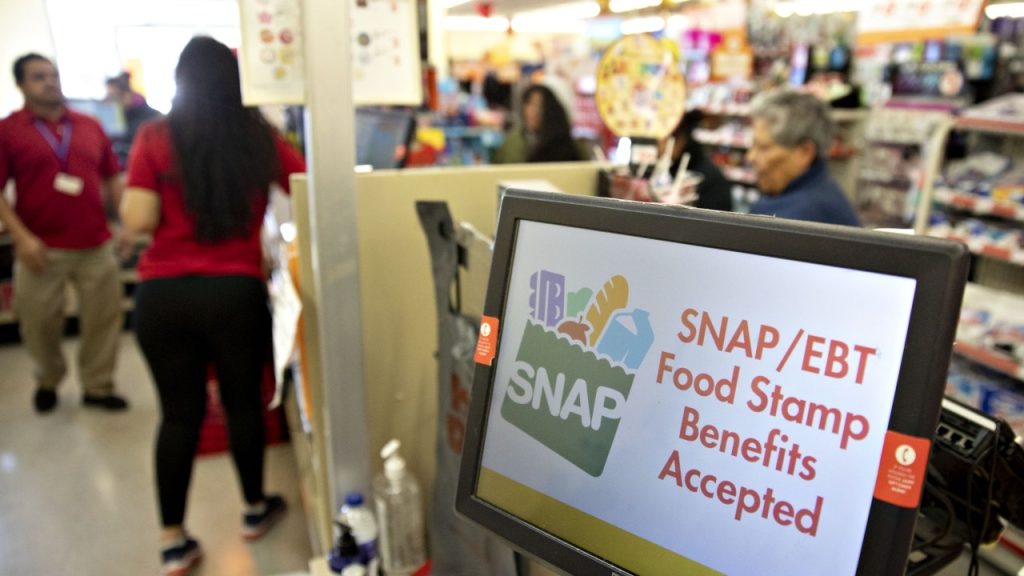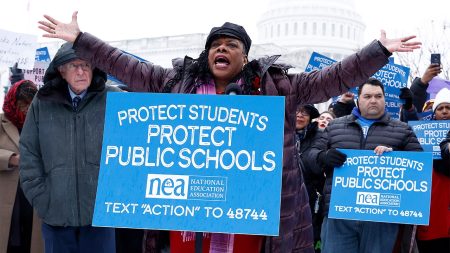Federal Court Decision on SNAP Benefits During Government Shutdown
In the midst of the ongoing U.S. government shutdown, a significant legal battle has unfolded regarding the funding of food assistance for millions of vulnerable Americans. On Sunday, a federal appeals court made a crucial decision to uphold a judge’s order that would require the Trump administration to fully fund this month’s Supplemental Nutrition Assistance Program (SNAP) benefits. This ruling affects approximately 42 million low-income Americans who depend on these benefits, commonly known as food stamps, for their nutritional needs. The Boston-based 1st U.S. Circuit Court of Appeals declined to overturn the decision made by Rhode Island Judge John McConnell, which mandated that the U.S. Department of Agriculture (USDA) allocate $4 billion—money originally set aside for other purposes—to ensure Americans receive their full SNAP benefits despite the government shutdown. This judicial intervention highlights the humanitarian concerns that arise when governmental operations cease, placing essential safety net programs in jeopardy and forcing the courts to weigh in on matters that affect the daily lives of millions of citizens.
The immediate impact of the appeals court’s decision, however, was temporarily suspended by Supreme Court Justice Ketanji Brown Jackson, who placed a hold on the lower court order shortly after it was issued. Justice Jackson’s temporary hold remains in effect for 48 hours following the 1st Circuit decision, creating a brief window of uncertainty for benefit recipients and program administrators alike. This legal back-and-forth between different levels of the judiciary demonstrates the complex interplay of governmental powers during a shutdown crisis, as courts attempt to balance their limited role in fiscal matters with the real-world consequences of inaction. The situation has created a patchwork of rulings and countermands that leave both state agencies and benefit recipients confused about what to expect, highlighting how governmental dysfunction can cascade through multiple systems and create widespread uncertainty for those who can least afford it.
In the midst of this legal maneuvering, the status of the nation’s critical anti-hunger food aid program has become increasingly uncertain. The USDA added to this confusion on Saturday when it directed states to “undo” any steps they had taken to issue full SNAP benefits before Justice Jackson’s order, warning that failure to comply could result in financial penalties. This directive created an administrative nightmare for state agencies that had already begun processing benefit payments, forcing them to navigate contradictory federal instructions while trying to serve vulnerable populations. The whiplash of changing directions illustrates how government shutdowns can create ripple effects that extend far beyond federal employees, ultimately threatening essential services for those most dependent on government assistance. The situation has left both state administrators and SNAP recipients in limbo, unsure whether they will receive their full benefits or face unexpected hunger at month’s end.
In its arguments before the 1st Circuit, the Trump administration contended that judges lack the constitutional authority to appropriate or spend federal money, and that Judge McConnell overstepped his bounds by forcing the USDA to locate funds beyond a designated contingency fund to pay for full SNAP benefits. Using colorful language, the administration characterized the judge’s order as forcing them to find money in the “metaphorical couch cushions,” placing blame squarely on Congress for the current crisis. This stance reflects the fundamental separation of powers tension that often emerges during government shutdowns, with the executive branch arguing that only the legislative branch can resolve funding gaps through new appropriations. By framing the issue as a matter for Congress alone to solve, the administration sought to deflect responsibility for ensuring continued benefits to the millions of Americans who rely on SNAP for their basic nutritional needs, even as the shutdown stretched into its second month.
The food assistance funding battle takes place against the backdrop of what has become the longest government shutdown in U.S. history, reaching its 41st day as of Monday. The prolonged closure has affected numerous government agencies and programs beyond SNAP, including national parks, federal courts, and various regulatory functions. While essential government operations continue, many federal workers have been furloughed or required to work without pay, creating financial hardship for thousands of families across the country. The Senate, responding to mounting pressure from constituents and advocacy groups concerned about the widening impacts of the shutdown, moved forward on Sunday with a measure aimed at reopening the federal government. This legislative action offers a glimmer of hope that the impasse might soon be resolved, potentially rendering the legal battle over SNAP funding moot if a budget agreement can be reached in time to process February’s benefits normally.
The legal controversy surrounding SNAP benefits during the shutdown exemplifies how political disputes in Washington can directly threaten the welfare of millions of Americans who depend on government assistance for their most basic needs. Food assistance programs like SNAP are designed to serve as a safety net for the country’s most vulnerable citizens—children, the elderly, people with disabilities, and working families struggling to make ends meet. When these programs become pawns in political standoffs, those with the least power and resources bear the greatest burden. The current situation also highlights the critical role of the judiciary in protecting citizens’ welfare during governmental crises, even as it raises questions about the proper boundaries between the three branches of government. As the shutdown continues and the legal battle unfolds, millions of Americans are left wondering whether they will be able to put food on their tables—a stark reminder that abstract political principles and power struggles often have very concrete human consequences.











